
Sleep tight and don’t let the bed bugs bite! Ewwwww—the mere thought of bed bugs makes most people’s skin crawl, even if you’re the toughest of the tough! No one ever wants to think about creepy crawlies being on their body (or worse—in your hair!!) while you enjoy some Zzzzzzz’s.
If you travel frequently, you probably know that bed bugs are an absolute nightmare—you may come across them in hotel rooms, and you may have even brought them home with you unwittingly. If you have experienced bed bugs, you know full well how difficult it is to get rid of these nasty bedfellows on your own. But have no fear! The pest control experts at Animal & Pest Control Specialist, Inc. know all about pest control in Castle Rock and surrounding areas, and we have many years of experience getting rid of bed bugs. Call us as soon as you discover these stubborn little guys have made their way into your home, and we’ll get rid of them as quickly as we can. Let’s look at some ways you can prevent bed bugs from joining you on your travels.
Bed bugs often go unseen, but they make their presence known in the form of patchy red bites and other signs.
The tiny insects are not known to spread disease, but their bites can cause skin irritation and allergic reactions. There has been a resurgence of bed bugs throughout Colorado and across the country over the past decade, and if you believe you have an infestation of bed bugs in your home it’s advisable to consult with a pest control expert.
Bed bugs are members of the Cimicidae family, parasitic insects that feed on blood. Bed bugs tend to feed at night, while people are sleeping, and their bites are painless. Bed bugs typically feed for no longer than 10 minutes before returning to an inconspicuous hiding area.
While the sensation of the bites tends to go unnoticed, the effects are often felt later when the body’s defense system reacts to proteins contained in the bed bugs’ saliva. The bite areas may show reddish swelling, and the accompanying itchiness can fluctuate in intensity. Because there is nothing that fully distinguishes bed bug bites from rashes or other insect bites, other means are required to establish their presence.
Bed bugs are light brown or reddish brown, and their flat, oval-shaped bodies are only 4 to 5 millimeters long. The most common indicator of bed bugs is the bugs’ bites, itchy red dots that typically appear in clusters and are most visible on the arms, shoulders and back.
Other signs of bed bugs include:
Despite their name, bed bugs may also be found in chairs, couches, curtains, drawers and other areas in the home where they have access to both shelter and food.
Bed bugs can be challenging to eradicate, and doing so often requires an integrated approach that includes cleaning, heat treatment, and pesticides.
The Environmental Protection Agency (EPA) offers some basic do-it-yourself tips for bed bug control. However, the EPA also notes that it can be beneficial to work with a pest-control professional who understands how to detect the extent of a bed bug infestation, destroy the entire bug population, and prevent a re-infestation.
If you’re faced with invasive insects or other pests, please contact Animal & Pest Control Specialist Inc. online or call us at 303-987-0842. We are proud to serve residents of the greater Denver area and along Colorado’s Front Range, from Fort Collins to Castle Rock.
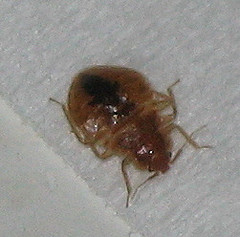
Bed bug populations have been rising in recent years, and more people are finding themselves attacked by these pests that have long pursued us. Because bed bugs are most closely related to bat parasites, it is believed that early humans picked up bed bugs when they were dwelling in caves, and they have been with us ever since. But your family doesn’t have to live with bed bugs if you follow these simple tips compiled by the US Environmental Protection Agency.
Once you’ve done all you can to reduce the bed bug population and you are still being bitten, it’s time to get professional help for quick and effective bed bug elimination.
As Animal Pest Control Specialists, we are able to help you with many types of pest problems including bed bugs.
For help with bed bugs, please contact APCS today.
In the beautiful Mile High City, where nature thrives and urban life bustles, there’s a small battle being waged in our very homes—against bugs in our food storage areas. Keeping our food pantry, pet food, and trash cans bug-free is more than just a cleanliness fetish; it’s about safeguarding our health and our homes from the teeny critters that seek to invade. This guide offers a local’s arsenal of tips and introduces Animal Pest Control, Inc., your Denver ally in keeping your living space sanitary and serene.
A pantry without pests is like a castle with an impenetrable wall—it’s essential for your safety. Here in Denver, where we balance city living with the call of the wild, this is even more crucial. Pests are not just unsightly, hey are carriers of disease and destroyers of your hard-earned groceries.
Insects such as weevils in your flour or moths in your oats can lead to waste, as contaminated goods must be thrown out, and they may carry health risks from the pathogens they spread. And let’s not forget the economic pinch; replacing spoiled food strains your budget, and in these times, who needs additional financial worries?
Keeping your pantry pristine isn’t just about aesthetics or avoiding the creepy-crawly factor; it’s a fundamental practice to protect both your family’s health and your finances. We’ve all experienced that sinking feeling when discovering a beloved snack has become a bug buffet. It’s not just about tossing out the old cereal box; it’s recognizing the uninvited guests can rapidly multiply, leading to larger pest infestations that are harder to control and potentially costlier.
In Denver, the change of seasons and our unique geography make our pantries a haven for pests. We’re talking about pantry moths that lay eggs in your grains, turning them into a breeding ground, or beetles that burrow into your nuts and seeds. Ants march in lines toward sweet spills, and cockroaches, those hardy survivors, can slip through cracks seeking crumbs. They’re not just in your home for the high altitude experience; they’re there to feast and nest.
These bugs have a knack for finding the smallest openings to set up their new home right in the middle of your provisions. Once inside, they can quickly become a persistent problem. Insects like these have impressive survival strategies, making them particularly adept at spreading throughout your pantry goods undetected. It’s crucial to understand their behaviors to combat them effectively—moths, for instance, are attracted to light and can often be found fluttering near well-lit areas, whereas beetles might prefer darker, undisturbed corners.
Now, let’s talk defense. Organizing your pantry is the frontline tactic against these unwanted invaders. High altitude means drier air in Denver, which can lead to stale snacks if not stored properly.
But did you know it also influences how insects behave and breed? That’s why keeping your pantry cool and dry is paramount. Storing dry food items off the floor on shelves is a simple move with big returns—it keeps potential pest magnets out of reach.
Wipe down these pantry shelves regularly. Spills are like a dinner bell for bugs, and prompt clean-up discourages their arrival. Be vigilant with perishables; rotating your stock is as important as a Broncos game strategy. Keep newer items at the back and bring older ones to the front, ensuring nothing gets forgotten and turns into a pest playground.
Invest in quality airtight containers. This is your secret weapon against the critters, as these containers lock out pests while keeping your food fresh. They’re especially important in Denver’s variable climate. Glass or heavy-duty plastic containers with secure lids will protect your food from both bugs and the elements, and they make your pantry staples last longer—a win-win for you and your wallet.
But let’s take it a step further. How you store your airtight containers can also impact their efficacy. Ensure they’re placed in a cool, dry part of the pantry, away from the oven or dishwasher which could cause heat and moisture to compromise their seal.
And consider the size—opt for containers that match the quantity of food you buy. Overly large containers for a small amount of food mean extra air that can lead to quicker spoilage.
Consistent checks and cleanliness are your routine patrols in the pest-prevention mission. Denver homes are as susceptible to seasonal changes as the great outdoors, and pests seek shelter when it starts to cool. Remove anything expired or showing signs of pest infestation immediately. If you spot a single weevil or moth, act fast—where there’s one, there are often more hiding.
Sealing your pantry off from invaders is essential. Caulk any cracks or holes in walls or around baseboards, and install door sweeps on pantry doors. These simple fixes can close the paths pests use to enter.
Consider the integration of natural repellents into your regimen. Plant-based options like mint, which pests detest, can be a soft but effective barrier. Even simple household substances like vinegar or essential oils can create an environment that’s less than inviting to bugs.
In Denver, where the great outdoors seamlessly blends with urban living, natural remedies are a popular choice for those looking to maintain the community ethos of living in tune with nature. These methods not only address concerns with insects but can also extend to deterring larger pests such as mice and voles, which are attracted to the same food sources.
These natural methods not only keep your pantry free from bugs but also help in controlling the presence of mice and voles, all while maintaining the quality of your home’s air, free from harsh chemicals.
Our pets are family, and their food deserves as much protection as ours. In Denver, where wildlife is more than just a scenic background, securing pet food is crucial. It’s not uncommon for the scent of pet food to attract not just insects but also larger critters. Airtight containers are just as effective here, providing an odor-proof and pest-proof solution.
Regularly cleaning your pet’s feeding area is a must. Leftover kibbles can invite ants and other insects, so ensure bowls are cleaned after each meal and that no food is left to sit out. And don’t forget about water bowls—a few drops of vinegar can deter bugs without affecting your pet.
Denver’s dynamic climate demands that we be savvy about pet food storage. Apart from airtight containers, consider specialized pet food bins that come with an additional seal or locking mechanisms, designed to withstand the jaws and claws of larger pests. Place these containers off the ground to make it even harder for bugs and other animals to sniff them out.
When serving your pets, try not to leave food out for prolonged periods. This is not just about cleanliness; it’s about breaking the cycle of attraction and access for pests. Establish a feeding routine—feed at the same times daily and promptly remove and clean the bowls afterward.
Garbage cans are like a beacon for pests if not managed properly. In Denver, where summer heat can intensify odors, it’s critical to have a strategy for waste management. Clean your bins regularly to prevent buildup of food debris and use sturdy bags that are less likely to rip and spill. Secure the lids tightly; if necessary, use bungee cords or weights to keep them closed and inaccessible to animals like raccoons, which are common in the area.
To further safeguard your trash cans, consider a variety of deterrents. Motion-activated lights can startle nocturnal pests like raccoons, while ultrasonic devices emit frequencies uncomfortable for pests but inaudible to humans. And don’t forget the power of natural repellents—essential oils like eucalyptus or peppermint oil can be sprinkled around cans to ward off insects and other pests.
In Denver, where city life meets the beauty of the Rockies, maintaining a pest-free environment is as much a part of home care as snow removal in winter or garden upkeep in the spring. With these tailored tips and support from local pest control company experts like Animal Pest Control, Inc., you can enjoy your urban oasis without the worry of uninvited guests in your pantry, pet food, or trash.
Remember, it’s not just about reacting to pests, but establishing a preventive routine that keeps them at bay. Embrace these practices and live harmoniously in the Mile High City, confident that your home is a fortress against pests.
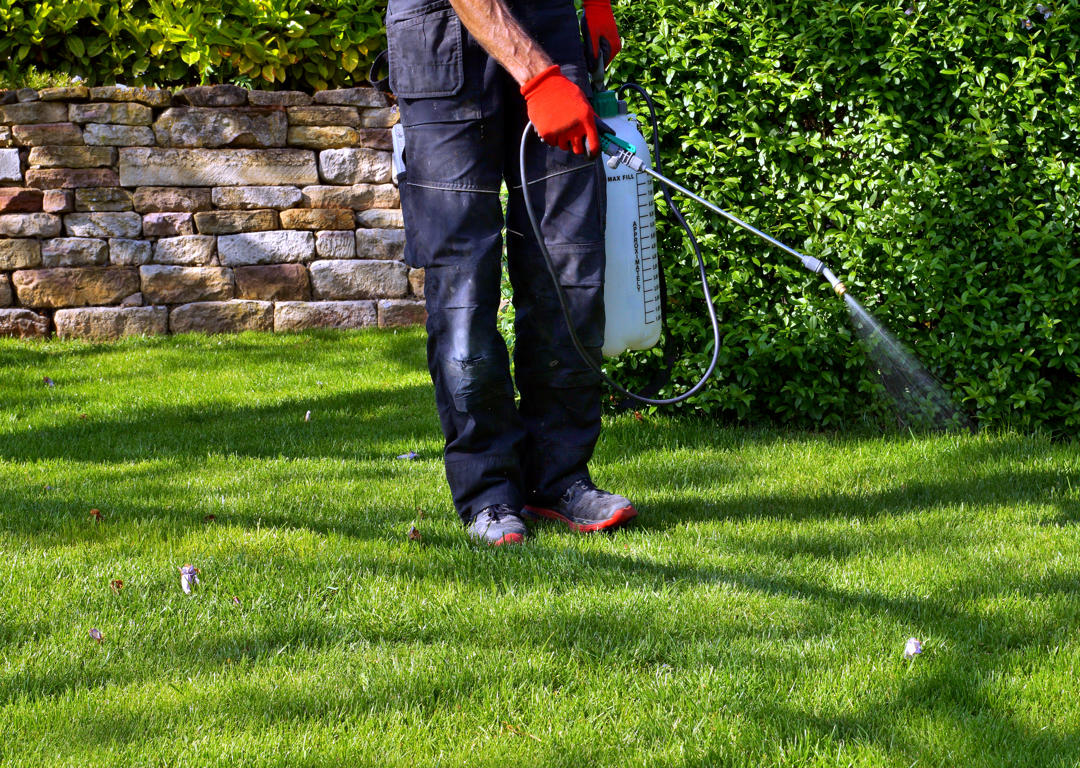
Pest control is a critical aspect of maintaining a healthy and comfortable home, yet many myths and misconceptions persist about the best ways to manage pests. These myths can lead to ineffective pest control measures and exacerbate infestations. This article aims to debunk some of the most common pest control myths, providing you with accurate information to effectively manage and prevent pest problems.
Debunked: While maintaining a clean home is essential for pest prevention, cleanliness alone does not guarantee a pest-free environment. Pests such as rodents, ants, and cockroaches are often attracted to food sources, but they also seek shelter and water. Even the cleanest homes can provide these necessities, particularly if there are entry points or hidden areas where pests can thrive.
Fact: Pests can infiltrate any home, regardless of cleanliness. To effectively prevent infestations, focus on sealing entry points, removing potential nesting sites, and maintaining proper sanitation. Regular inspections and proactive measures are crucial for long-term pest control.
Debunked: DIY pest control methods can be effective for minor infestations, but they often fall short in dealing with more severe or persistent pest problems. Over-the-counter pesticides and home remedies may provide temporary relief but typically do not address the root causes of infestations.
Fact: Professional pest control services offer comprehensive solutions that target the source of the problem and provide long-term results. Pest control professionals have the expertise, tools, and products needed to effectively manage and prevent infestations. For significant pest issues, it’s best to consult a professional.
Debunked: Ultrasonic pest repellents, which emit high-frequency sounds intended to deter pests, are widely marketed as an effective solution. However, scientific studies have shown that these devices are generally ineffective in repelling pests like rodents and insects. Pests can quickly become accustomed to the sounds, rendering the devices useless.
Fact: Effective pest control requires a combination of strategies, including sanitation, exclusion, and targeted treatments. Relying solely on ultrasonic repellents is unlikely to provide significant results. Integrating multiple pest control methods is essential for comprehensive management.
Debunked: While cats are natural predators of rodents, relying on them solely for pest control is not effective. Some cats may not have strong hunting instincts, and even those that do can only catch a limited number of rodents. Additionally, rodents can reproduce quickly, outpacing the rate at which a cat can catch them.
Fact: A multi-faceted approach is necessary for effective rodent control. This includes sealing entry points, setting traps, and using rodenticides where appropriate. Professional pest control services can provide more reliable and comprehensive rodent management solutions.
Debunked: While some pesticides can pose risks to pets and humans if misused, many modern pest control products are designed to be safe when used correctly. Integrated Pest Management (IPM) practices prioritize the use of non-toxic methods and targeted treatments to minimize risks.
Fact: The key to safe and effective pest control is proper application and adherence to safety guidelines. Professional pest control services are trained to use products safely and effectively, reducing risks to pets and humans. Always follow label instructions and consider non-toxic alternatives when possible.
Debunked: Many pests are nocturnal or adept at hiding, making them difficult to detect until infestations become severe. For example, bed bugs, termites, and certain rodent species often remain hidden in cracks, crevices, and other out-of-sight areas.
Fact: Regular inspections and monitoring are essential for early detection of pest problems. Look for signs of pest activity, such as droppings, damage, and unusual odors. Professional inspections can identify hidden infestations and provide early intervention.
Debunked: Pest control is not a one-time fix but an ongoing process. Pests can return if preventive measures are not maintained, and environmental factors can lead to new infestations. Regular monitoring and maintenance are necessary to keep pests at bay.
Fact: Effective pest control requires continuous efforts, including regular inspections, sanitation, and exclusion practices. Establishing a routine pest management plan can help prevent future infestations and maintain a pest-free environment.
Debunked: While over-the-counter baits and traps can be useful for minor pest issues, they are often insufficient for dealing with more extensive infestations. Some pests may avoid these products altogether, and improper placement can reduce their effectiveness.
Fact: Professional pest control services have access to more effective and specialized baits, traps, and treatments. They can assess the extent of an infestation and implement a tailored approach to address the problem comprehensively.
Debunked: Insects like cockroaches, ants, and pantry pests are often associated with dirty kitchens, but they can infest clean kitchens as well. They are attracted to food sources, moisture, and warmth, which can be present even in well-maintained homes.
Fact: To prevent insect infestations, store food in sealed containers, fix leaks, and maintain cleanliness. Regularly inspect pantry items and dispose of expired or infested products. Pest-proofing your home is more effective than relying solely on cleanliness.
Debunked: Bed bugs can be found in various locations, not just beds. They can hide in furniture, luggage, clothing, and even behind wallpaper and electrical outlets. Bed bugs are adept at spreading and can infest any area where humans rest or sleep.
Fact: Effective bed bug control requires a comprehensive approach, including thorough inspections, treatment of all infested areas, and preventive measures. Professional pest control services are often necessary to eradicate bed bugs completely.
Understanding and debunking common pest control myths is essential for effective pest management. By relying on accurate information and proven strategies, you can better protect your home from infestations. For reliable and comprehensive pest control solutions, consider contacting Animal & Pest Control Specialists. Our team of experts is dedicated to providing effective and safe pest management services tailored to your needs.
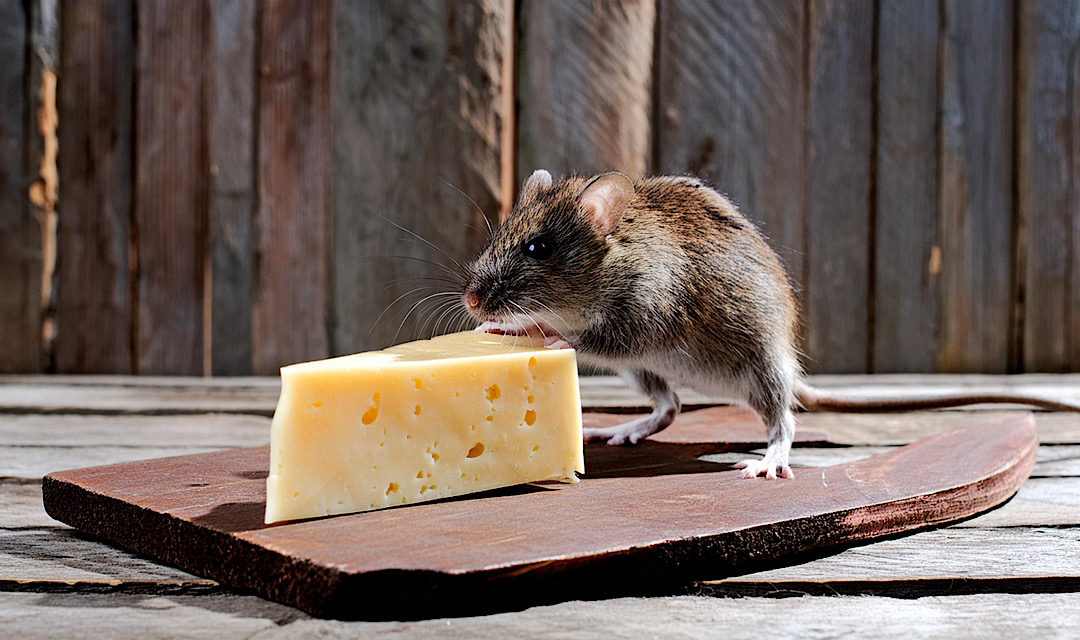
When it comes to pest control, misinformation can lead to ineffective practices, wasted resources, and in some cases, worsening pest problems. Dispelling these myths is crucial for homeowners to approach pest control effectively and safely. This article addresses some of the most persistent myths about pest control, providing factual insights to guide proper pest management strategies.
Fact: While cartoons popularize the image of mice loving cheese, professional exterminators often find that high-protein baits, such as peanut butter or pet food, are more effective. Mice are more attracted to foods with strong aromas and nutritional value, making peanut butter an excellent choice for bait.
Fact: Bed bugs are not attracted to dirt or decay but to blood. They can be found in any environment as long as they have access to their food source: humans. Cleanliness does have a role in preventing infestations by reducing hiding spots and making detection easier, but even the cleanest homes can suffer from bed bugs, especially if they hitch a ride on luggage, furniture, or clothing.
Fact: Ultrasonic pest repellents, devices that emit high-frequency sounds purported to be unbearable to pests, have mixed reviews regarding their effectiveness. Research and consumer reports suggest that these devices may have limited effects on certain pests and are unlikely to solve an infestation on their own. It’s always better to rely on proven pest control methods.
Fact: Many pests are nocturnal and have a knack for hiding, making them difficult to spot. Just because you don’t see pests during the day doesn’t mean they aren’t there. Termites, for instance, can cause extensive damage before homeowners are aware of an infestation. Regular inspections by professionals can help uncover hidden pest problems.
Fact: The cost of professional pest control can vary depending on the extent of the infestation and the methods needed to address it. However, considering the potential damage pests can cause and the ineffectiveness of some DIY methods, investing in professional pest control can be cost-effective in the long run. Many pest control companies offer free estimates, allowing homeowners to understand the costs upfront.
Fact: While DIY pest control can be effective for minor issues, professionals have access to more potent and specific treatments not available to the general public. They are also trained to safely apply these treatments, reducing the risk to humans and pets. For significant infestations or pests that pose health risks, such as rodents, termites, or bed bugs, professional intervention is recommended.
Fact: While safety concerns regarding pesticides are valid, not all pesticides are created equal. Many modern pest control methods use targeted approaches to minimize risk, including baits, traps, and eco-friendly options that are safer for humans and pets. Professional pest control services are knowledgeable about the safest and most effective treatments for different situations.
Debunking these myths is the first step toward effective pest management. Understanding the facts about pest control can help homeowners make informed decisions about how to protect their homes from pests safely and efficiently. When in doubt, consulting with a professional pest control service can provide tailored advice and solutions for pest issues, big or small.
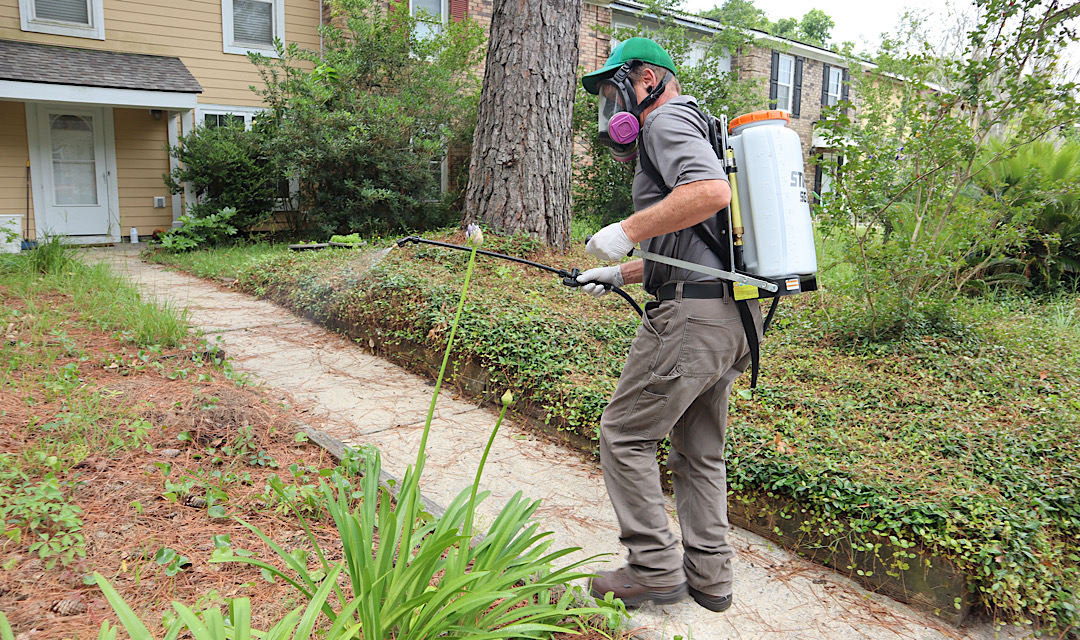
Denver, with its unique climate that encompasses warm summers and cold winters, experiences a variety of seasonal pests throughout the year. Each season brings a new set of challenges for homeowners looking to protect their properties from unwelcome visitors. Understanding the seasonal patterns of pest activity in Denver is crucial for implementing effective prevention and control strategies. This guide offers insights into the common pests you might encounter each season in Denver and tips on preparing your home against these seasonal invaders.
Common Pests: Ants, Spiders, Wasps
As Denver thaws from the winter chill, many pests reemerge, seeking food and shelter. The warming temperatures of spring can lead to increased activity in ants, seeking to replenish their colonies’ resources. Spiders become more visible as they prey on other insects, and wasps begin constructing new nests.
Preparation Tips:
Seal Entry Points: Inspect your home for cracks and openings where pests can enter, focusing on windows, doors, and the foundation.
Manage Moisture: Eliminate standing water and fix leaks, as moisture attracts many spring pests.
Clear Debris: Remove leaf litter, branches, and other debris from your yard that can provide shelter for pests.
Common Pests: Mosquitoes, Flies, Rodents
Denver’s summer brings warmer temperatures and increased pest activity. Mosquitoes thrive in humid conditions, breeding in even the smallest amounts of stagnant water. Flies become a nuisance, especially around food sources, and rodents may seek refuge in homes from the heat.
Preparation Tips:
Water Management: Keep gutters clear and ensure proper drainage around your home to prevent mosquito breeding sites.
Food Storage: Store food in sealed containers and keep dining areas clean to avoid attracting flies and rodents.
Yard Maintenance: Keep grass trimmed and eliminate clutter to reduce rodent hiding spots.
Common Pests: Mice, Rats, Cockroaches
As temperatures begin to drop in Denver, pests start seeking warm places to overwinter. Mice and rats can enter homes through small openings, looking for food and warmth. Cockroaches may also invade indoor spaces to escape the cooling outdoor temperatures.
Preparation Tips:
Seal Gaps: Use caulk and steel wool to seal gaps and cracks around your home’s exterior, especially where pipes and cables enter.
Declutter: Reduce clutter in basements, attics, and garages to minimize rodent nesting sites.
Proper Waste Management: Secure garbage in tightly sealed bins to not attract rodents and cockroaches.
Common Pests: Spiders, Silverfish, Bed Bugs
With Denver’s cold winters, indoor pests become a more significant concern. Spiders and silverfish seek refuge in warm, humid areas of homes, such as basements and bathrooms. Bed bugs can be a year-round problem but may become more noticeable in winter as people spend more time indoors.
Preparation Tips:
Reduce Humidity: Use dehumidifiers in damp areas of your home to deter pests like silverfish.
Regular Cleaning: Vacuum regularly and declutter to minimize hiding spots for spiders and other pests.
Inspect Secondhand Items: Carefully inspect any secondhand furniture or clothing for bed bugs before bringing them into your home.
Effective pest management in Denver requires year-round vigilance. Regular home maintenance, proper sanitation, and being proactive about seasonal changes can greatly reduce the likelihood of pest infestations. For persistent or large-scale infestations, consider consulting a professional pest control service that understands Denver’s unique pest pressures and can offer tailored solutions.
Understanding the seasonal patterns of pests in Denver allows homeowners to anticipate and mitigate potential infestations before they become significant problems. By staying informed and prepared, you can enjoy the beauty of Denver’s seasons without the nuisance of unwanted pests.
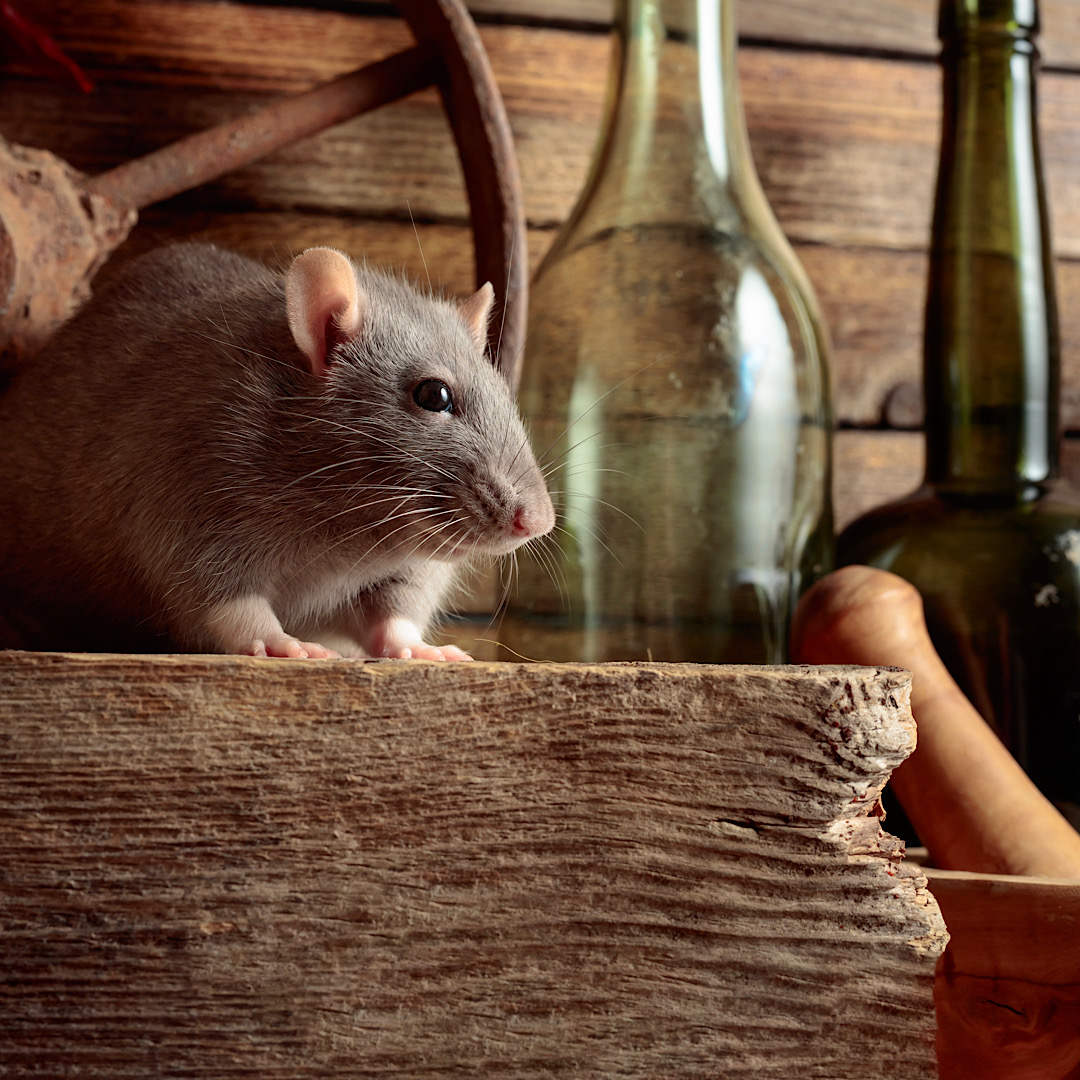
Denver, known for its picturesque landscapes and vibrant outdoor lifestyle, also faces challenges from local wildlife and pests that can threaten homes and peace of mind. Protecting your property requires a multifaceted approach, blending preventive measures with effective management strategies. This article delves into the intricacies of common Denver pests, including rodents, insects, and wildlife, providing homeowners with comprehensive strategies to safeguard their homes.
Rodents (Mice and Rats): Denver’s climate can drive rodents to seek shelter in homes, especially during cooler months. These pests can cause significant damage by chewing through wires, insulation, and wooden structures. Furthermore, they pose health risks by contaminating food sources and spreading diseases like Hantavirus and Salmonella.
Insects (Ants, Spiders, and Bed Bugs): The diverse insect population in Denver includes ants seeking food and moisture, spiders preying on other insects, and bed bugs hitchhiking on luggage or clothing. While most spiders are harmless, the presence of certain species like the black widow can be concerning. Bed bugs, on the other hand, can lead to discomfort and significant eradication challenges.
Wildlife (Raccoons, Squirrels, and Birds): Urban sprawl into natural habitats has led to increased encounters with wildlife such as raccoons, squirrels, and birds. These animals can damage roofs, eaves, and gardens, and potentially spread diseases like rabies.
Preventive Measures:
Seal Entry Points: Conduct regular inspections of your home’s exterior to identify and seal cracks, holes, and gaps where pests could enter. Pay special attention to areas where utilities enter the home.
Proper Waste Management: Secure trash cans with tight-fitting lids and regularly dispose of garbage to avoid attracting rodents and wildlife.
Landscaping Maintenance: Trim trees and shrubs away from your home to prevent easy access for pests. Remove debris and leaf litter where insects and rodents can hide.
Cultural Practices:
Moisture Control: Fix leaky faucets and ensure proper drainage around your home to deter ants and other moisture-seeking pests.
Food Storage: Store food in airtight containers and regularly clean crumbs and spills to avoid attracting ants and rodents.
Clutter Reduction: Declutter your home, especially in storage areas like basements and attics, to eliminate hiding spots for pests.
Chemical and Biological Control:
Pesticide Use: Consider the judicious use of pesticides in areas where pests are prevalent. Always follow label instructions or consult with professionals for safe application.
Natural Predators: Encourage or introduce natural predators of certain pests, such as birds for insect control, as part of an integrated pest management strategy.
For persistent or severe infestations, seeking professional pest control services is advisable. Professionals possess the knowledge, tools, and techniques to effectively address pest problems, ensuring the safety and well-being of your family and pets.
Protecting your Denver home from pests requires a proactive and comprehensive approach. By understanding the types of pests common to the area and implementing a blend of preventive, cultural, chemical, and professional strategies, homeowners can significantly reduce the risk of infestation. Remember, the key to effective pest management lies in early detection and immediate action to prevent minor issues from becoming major infestations.
Mice can contaminate food-preperation areas with their feces and can cause severe damage to structures.
Here are the signs you should be looking for to identify new pest problems this season.
We offer all the pest control services you need, including prevention, removal, and extermination.
It’s hard to understand the value we offer until you’ve tried us. Our discount makes it easier for new customers to get the best value in pest control.